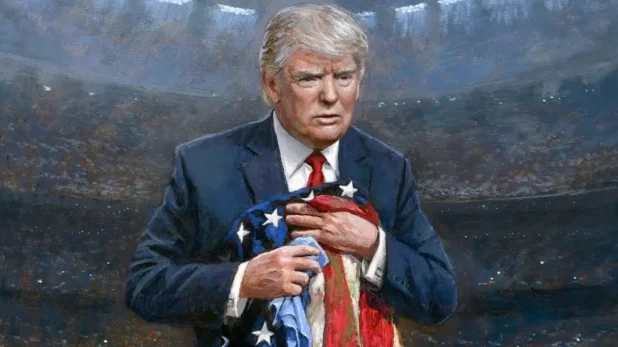The Presidential Records Act is very clear that the president can declassify anything at all.
But I guess there was one document in the universe he wasn’t allowed to declassify. And by pure coincidence, he accidentally took that precise document.
It’s so over.
Even when he was president, Donald Trump lacked the legal authority to declassify a U.S. nuclear weapons-related document that he is charged with illegally possessing, security experts said, contrary to the former U.S. president’s claim.
The secret document, listed as No. 19 in the indictment charging Trump with endangering national security, can under the Atomic Energy Act only be declassified through a process that by the statute involves the Department of Energy and the Department of Defense.
For that reason, the experts said, the nuclear document is unique among the 31 in the indictment because the declassification of the others is governed by executive order.
“The claim that he (Trump) could have declassified it is not relevant in the case of the nuclear weapons information because it was not classified by executive order but by law,” said Steven Aftergood, a government secrecy expert with the Federation of Atomic Scientists.
The special status of nuclear-related information further erodes what many legal experts say is a weak defense centered around declassification. Without providing evidence, Trump has claimed he declassified the documents before removing them from the White House.
Prosecutors likely will argue that declassification is irrelevant because Trump was charged under the Espionage Act, which predates classification and criminalizes the unauthorized retention of “national defense information,” a broad term covering any secrets that could be helpful to the nation’s enemies.
Document No. 19 is marked “FRD,” or Formerly Restricted Data, a classification given to secret information involving the military use of nuclear weapons. The indictment described it as undated and “concerning nuclear weaponry of the United States.”
Trump, who pleaded not guilty on Tuesday, has said he declassified while still in office the more than 100 secret documents he took to his Florida resort home, Mar-a-Lago, a contention echoed by Republican lawmakers and other supporters.
But Aftergood and other experts said that the Atomic Energy Act (AEA) of 1954 – under which the Department of Energy oversees the U.S. nuclear arsenal – defines a process for declassifying nuclear weapons data, some of the U.S. government’s most closely guarded secrets.
“The statute is very clear. There’s nothing that says the president can make that decision,” said a former U.S. national security official familiar with the classification system, who asked to remain anonymous.
I don’t really believe this, or think that a judge or a Florida jury will agree with it.
But we’ll see, I guess.
There won’t be a trial until after the election anyway, so the whole thing is sort of pointless to even talk about.
President Trump’s attorney (Alina Habba) on the sham charges against a President who has the sole authority to declassify documents, but Biden as Vice President did not have that same authority pic.twitter.com/wsqQiwnoQn
— • ᗰISᑕᕼIᗴᖴ ™ • (@4Mischief) June 13, 2023
 Daily Stormer The Most Censored Publication in History
Daily Stormer The Most Censored Publication in History



